
(12) Hybrid Dynamics and Networks with Applications: Jianquan Lu, Souhteast University, China (Chair)
12.1. Speaker: Prof. Zhiqiang Zuo, Tianjin University, China
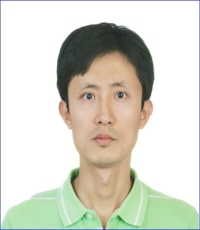
Talk Title: Opinion dynamics in social networks: consensus vs. clusters
Abstract: Most of the results on opinion dynamics entirely rely on interacting network to characterize the relationship among participating social actors, such as information flow, cooperative and antagonistic influence, etc. The interacting network is generally public for social groups. In this paper, we present a model on describing how individual's opinion evolves. Our model is consisted of two functional independence networks, the interacting and appraisal network. The interacting network inherits the functions as the classical DeGroot model obeys. While the appraisal network describes how each individual's attitude, which may be antagonistic, towards the opinions of the participating individuals. We explicitly show that cooperative appraisal network always leads to consensus in opinions. On the other hand, the antagonistic appraisal network yields opinion clusters except for some special structures, under which opinions also trend to aggregation. They hence bridge the gap between consensus and clusters in opinion dynamics.
Biography: Prof. Zhiqiang Zuo received the Ph.D. degree in control theory in 2004 from Peking University, China. In 2004, he joined the School of Electrical and Information Engineering, Tianjin University, where he is a full professor. From 2008 to 2010, he was a Research Fellow in the Department of Mathematics, City University of Hong Kong. From 2013 to 2014, he was a visiting scholar at the University of California, Riverside. His research interests include nonlinear control, robust control and multi-agent systems. He was selected to be a member of New Century Excellent Talents in University, Ministry of Education in 2011. Dr. Zuo is an Associate Editor of Journal of Franklin Institute.
12.2. Speaker: Prof. Hao Yang, Nanjing University, China
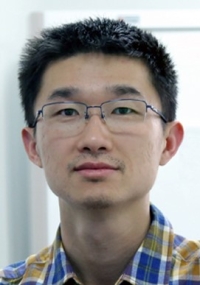
Talk Title: Stability and fault-tolerant control of switched systems and its applications
Abstract: The analysis and synthesis of nonlinear switched systems has been a research hotspot in the field of control in recent years, which is of great significance in theory and practice. This talk presents the latest research results on stabilization with unstable mode nonlinear switched systems, and discusses stabilization with partially unstable modes and all unstable modes separately. Moreover, some application directions of theoretical results and achievements on fault-tolerant control of switched systems are further elaborated.
Biography: Prof. Hao Yang was born in Nanjing, China, in 1982. He received the Ph.D. degrees in automatic control from Université de Lille 1 Sciences et Technologies, Villeneuve-d' Ascq, France, and the Nanjing University of Aeronautics and Astronautics (NUAA), Nanjing, China, in 2009. In 2009, he joined the College of Automation Engineering, NUAA, where he is currently a Full Professor. He has published 2 books and over 60 international journal papers. His current research interests include stability analysis and fault-tolerant control of switched and interconnected systems with their applications. Dr. Yang was a recipient of the National Science Fund for Excellent Young Scholars in 2016 and the Top-Notch Young Talents of Central Organization Department of China in 2017. He has served as an Associate Editor for Nonlinear Analysis: Hybrid Systems, Cyber-Physical Systems, and Acta Automatica Sinica.
12.3. Speaker: Prof. Xiaodi Li, Shandong Normal University, China
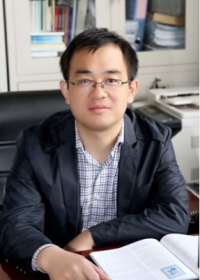
Talk Title: Finite-time control of impulsive systems
Abstract: The talk focuses on the finite-time control of impulsive systems. Firstly, In view of two kinds of finite-time controls in different senses of time domain, both related concepts and brief introduction of development are given. Besides, the research significance of these two kinds of finite-time control is introduced in a problem-driven way. Secondly, this talk highlights relevant research achievements, especially in the issue of settling-time of finite-time stability in recent years.
Biography: Prof. Xiaodi Li received the B.S. and M.S. degrees from Shandong Normal University, Jinan, China, in 2005 and 2008, respectively, and the Ph.D. degree from Xiamen University, Xiamen, China, in 2011, all in applied mathematics. He is currently a Professor with the School of Mathematics and Statistics, Shandong Normal University. From Nov. 2014 to Dec. 2017, he was a Visiting Research Fellow at Laboratory for Industrial and Applied Mathematics in York University, Canada, and the University of Texas at Dallas, USA. In 2017, he was working as Visiting Research Fellow at the Department of Mathematics, City University of Hong Kong, Hong Kong. He has authored or coauthored more than 70 research papers. His current research interests include stability theory, delay systems, impulsive control theory, artificial neural networks, and applied mathematics.
12.4. Speaker: Prof. Zhongke Gao, Tianjin University, China
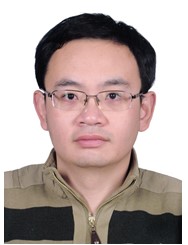
Talk Title: Multi-source information fusion and applications based on complex network and deep learning
Abstract: Revealing complicated behaviors from time series constitutes a fundamental problem of continuing interest and it has attracted a great deal of attention from a wide variety of fields on account of its significant importance. The past decade has witnessed a rapid development of complex network studies, which allow to characterize many types of systems in nature and technology that contain a large number of components interacting with each other in a complicated manner. Recently, the complex network and deep learning have been incorporated into the analysis of time series and fruitful achievements have been obtained. Complex network and deep learning analysis of time series open up new venues to address interdisciplinary challenges in climate dynamics, multiphase flow, brain functions, economics and traffic systems. Some novel methodologies and their applications in this research area will be introduced.
Biography: Prof. Zhongke Gao is now a Full Professor of the School of Electrical and Information Engineering, Tianjin University. He has published 90 SCI-indexed peer-reviewed journal articles in the IEEE Transactions on Neural Networks and Learning Systems, IEEE Transactions on Industrial Informatics, IEEE Transactions on Instrumentation and Measurement, IEEE Transactions on Systems, Man, and Cybernetics: Systems, IEEE Sensors Journal, Knowledge-Based Systems, Chemical Engineering Journal, Experimental Thermal and Fluid Science, etc. 12 first-author papers are selected as the ESI Highly Cited Papers. His Google Scholar Citations is over 2000. He has published one book (academic monograph) in Springer in 2014. He owns 32 Chinese invention patents. Zhongke Gao is the director of Laboratory of Complex Networks and Intelligent Systems at Tianjin University. Zhongke Gao serves as Editorial Board Member for four SCI-indexed international journals. His current research interests include Complex network, Deep learning, Big data analysis, Time series analysis, Brain network and brain cognition, Brain-computer interface, Sensor devices and sensor arrays, Measurement science and technology, Multiphase flow, Multiscale analysis, Nonlinear dynamics, etc.
12.5. Speaker: Prof. Yang Liu, Zhejiang Normal University, China
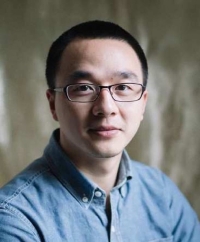
Talk Title: On the observability of logical networks
Abstract: This talk is about the observability problem on Boolean networks (BNs) using semi-tensor product (STP) of matrices. A necessary and sufficient condition is obtained to determine the observability of BNs. In addition, a necessary and a sufficient condition is obtained to determine the minimal number of nodes, which need to be directly measurable.
Biography: Prof. Yang Liu received the B.S. degree in Mathematics from Zhejiang Normal University, Jinhua, China, in 2003, and the Ph.D. degree from Tongji University, Shanghai, China, in 2008. He is currently a Professor with the Department of Mathematics, Zhejiang Normal University. His current research interests include hybrid systems and logical networks. Dr. Liu was a recipient of the Shanghai Outstanding Ph.D. Thesis Award in 2012. He is currently an Associate Editor of the Neural Processing Letters (Springer).
12.6. Speaker: Prof. Haitao Li, Shandong Normal University, China
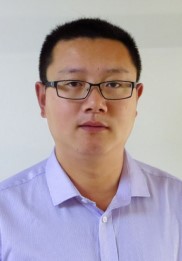
Talk Title: Function Perturbation Impact on Stabilization of Logical Control Networks
Abstract: Gene mutation often occurs in practical genetic regulatory networks (GRNs), which may lead to genetic diseases. Therefore, it is meaningful to investigate the effect of gene mutation on the steady state and intervention of GRNs. This talk presents some new results on the robust stability and stabilization of logical control networks with (stochastic) function perturbations. In addition, some future directions are also discussed.
Biography: Prof. Haitao Li, received the Ph.D. degree at Shandong University in 2014. Since 2015, he has been with the School of Mathematics and Statistics, Shandong Normal University, where he is currently a professor. From Jan. 2014 to Jan. 2015, he worked as a Research Fellow in Nanyang Technological University. His research interests include logical dynamic systems, networked evolutionary games, nonlinear control, etc. He won the Young Experts of Taishan Scholar Project in 2019, the Second Class Prize of The Natural Science Award of Shandong Province in 2018, the Distinguished Young Scholars of Shandong Province in 2016, the ``Guan Zhaozhi Award'' in 2012, and the ``Best Student Paper Award'' at the 10th World Congress on Intelligent Control and Automation.